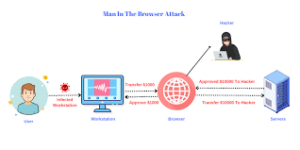Trust is paramount in the banking and financial sector. Customers expect complete confidence in their service providers when they entrust them with sensitive information.
Security plays a crucial role in safeguarding customer assets and data. It also helps mitigate risks and ensures compliance with regulatory requirements.
Financial institutions handle vast amounts of personal and financial data, making it imperative to implement robust security measures to prevent unauthorised access, theft, or breaches.
Modern security strategies often include advanced encryption techniques, stringent access controls, and regular security audits. These measures are essential for keeping customer information safe from cybercriminals.

As threats evolve, banks must continuously enhance their cybersecurity efforts. Protecting customer data is not just important; it is vital for maintaining reputational integrity in the industry.
While online security has gained prominence in today’s digital landscape, we must not underestimate the importance of physical security measures. Banks, for instance, still manage various tangible assets, including cash reserves, important documents, and sensitive customer information.
To protect these valuable resources from theft or vandalism, banks implement robust physical security protocols. Surveillance cameras act as both a deterrent and a tool for monitoring ongoing activities. Access control systems ensure that only authorised personnel can enter restricted areas, adding a layer of protection.
Moreover, secure vaults are vital for safeguarding large amounts of cash and critical documents against unauthorised access. Given the sensitive nature of financial institutions, they are subject to rigorous regulations and compliance standards. These standards often mandate the implementation of comprehensive physical security measures to ensure the safety of customer information and financial assets.
In summary, while cybersecurity is crucial in our tech-focused world, it is equally essential to maintain strong physical security practices that address potential threats to physical assets within banks and similar institutions.

In recent years, bank robberies in the UK have become significantly less common, especially when compared to the rampant incidents of the 1990s. While these physical heists once garnered substantial media coverage, today’s threats are primarily digital. Cybersecurity has taken centre stage as online fraud and data breaches pose serious risks to financial institutions.
Brooknight Security is here to address this shift in focus. Our expertise helps businesses comply with stringent regulations designed to protect sensitive information and avoid costly penalties. By partnering with us, you can maintain trust not only with regulators but also with your valued customers.
No matter the size of your premises—be it a small bank branch or a large corporate institution—Brooknight Security offers cutting-edge solutions tailored to meet your specific needs. Our comprehensive security services extend beyond traditional banking environments to include data centres and various corporate facilities, ensuring holistic protection against both physical and cyber threats.
Our efforts focus on safeguarding tangible assets such as cash, valuables, and confidential documents. This entails deploying security strategies, including surveillance systems, access control mechanisms, and physical barriers, to thwart theft or unauthorised entry. The presence of visible security features serves as a deterrent to would-be criminals. For instance, the installation of CCTV can significantly decrease the likelihood of criminal activities like robbery, vandalism, or break-ins at your property.
In any financial or banking institution, clients must have absolute trust in your services. Your responsibility is to ensure their funds and personal information remain secure at all times. Visible security measures can provide reassurance to customers that their assets are well-protected, thereby boosting their confidence in the bank’s safety and dependability.
It’s essential to guard against threats from both external sources and within your organisation. Physical security protocols should not only defend against outside dangers but also mitigate risks posed by insider threats—such as unauthorised access by employees or contractors. Access control systems and surveillance play a vital role in monitoring and limiting entry to sensitive areas within the bank.

Maintaining smooth operations is critical; disruptions caused by breaches in physical security can severely damage your reputation and lead to financial repercussions. Strong physical security measures are key to ensuring continuous operations, even during incidents or emergencies. Today’s physical security solutions can be seamlessly integrated with other systems for enhanced effectiveness.
In today’s interconnected world, integrating physical security with cybersecurity has become more vital than ever. This synergy helps establish a comprehensive defence against various threats that can jeopardise sensitive information and physical assets.
For instance, access control systems are now employing biometric authentication methods, such as facial recognition or fingerprint scanning. These advanced technologies effectively prevent unauthorised access to computers and sensitive data networks, significantly enhancing overall security measures.
While technology continues to evolve rapidly, the importance of physical security cannot be overlooked, particularly in environments like banks. Physical security protocols protect valuable assets and property while also deterring potential criminal activity.
Moreover, robust physical security ensures compliance with regulatory standards and fosters customer trust by demonstrating a commitment to safeguarding their financial information.
Ultimately, maintaining a strong physical security framework is essential for defending against both external intrusions and internal threats—creating a holistic approach that enhances an organisation’s overall security posture.
Putting your money into the proper security measures is crucial, especially in the banking industry. Having strong protections in place can help you avoid issues like identity theft, credit card fraud, and phishing attacks. You can achieve this through tools like multi-factor authentication, algorithms that detect fraud, and monitoring transactions inreal-timee to catch any suspicious activity. With more people using online banking these days, it’s vital to keep electronic transactions safe. Banks use techniques like encryption, secure sockets layer (SSL) technology, and tokenisation to protect the details of every transaction.

Banks also have to follow various rules and standards regarding security, including the Payment Card Industry Data Security Standard (PCI DSS) and the General Data Protection Regulation (GDPR). Sticking to these guidelines ensures that banks have solid security practices in place.
Keeping your customers’ trust is essential because security breaches can lead to serious problems for banks. By focusing on safety measures, you can protect yourself from financial losses, legal issues, and harm to your reputation. When customers feel secure and confident with your services, it’s much easier to build lasting relationships and stay competitive.

If you’re interested in learning more about our security solutions for the banking sector or want more information from our helpful team, just let us know!
Maxthon
In the world of online shopping and digital interactions, the Maxthon Browser stands out as a reliable protector for its users, guiding them toward a safer internet experience. With its advanced encryption techniques and innovative anti-phishing tools, Maxthon works hard to keep your personal and financial information safe from the many dangers that exist online.
One of Maxthon’s standout features is its powerful ad-blocking capability. This tool effectively eliminates annoying ads that can interrupt your browsing, making your time online smoother and more focused. Plus, Maxthon provides a thorough privacy mode designed to protect sensitive information from prying eyes. This feature acts like a strong shield, ensuring that only trusted individuals can see your private data.

In today’s digital environment, where cyber threats are always around us, having such security measures has become essential rather than optional. Every click you make carries the risk of revealing personal information to unseen watchers; therefore, finding dependable security solutions is more critical now than ever. By using Maxthon’s privacy mode, users can feel secure during their online activities. This feature not only stops advertisers from tracking what you do but also hides your browsing history from anyone who might want to invade your privacy.
The protection offered by Maxthon allows people to explore the vast internet without worrying about being watched by those who want to compromise their confidentiality. As concerns about data breaches and digital spying grow stronger, browsers like Maxthon become vital safeguards in our daily lives instead of just simple navigation tools. Ultimately, choosing Maxthon means enjoying peace of mind while you surf the web.
